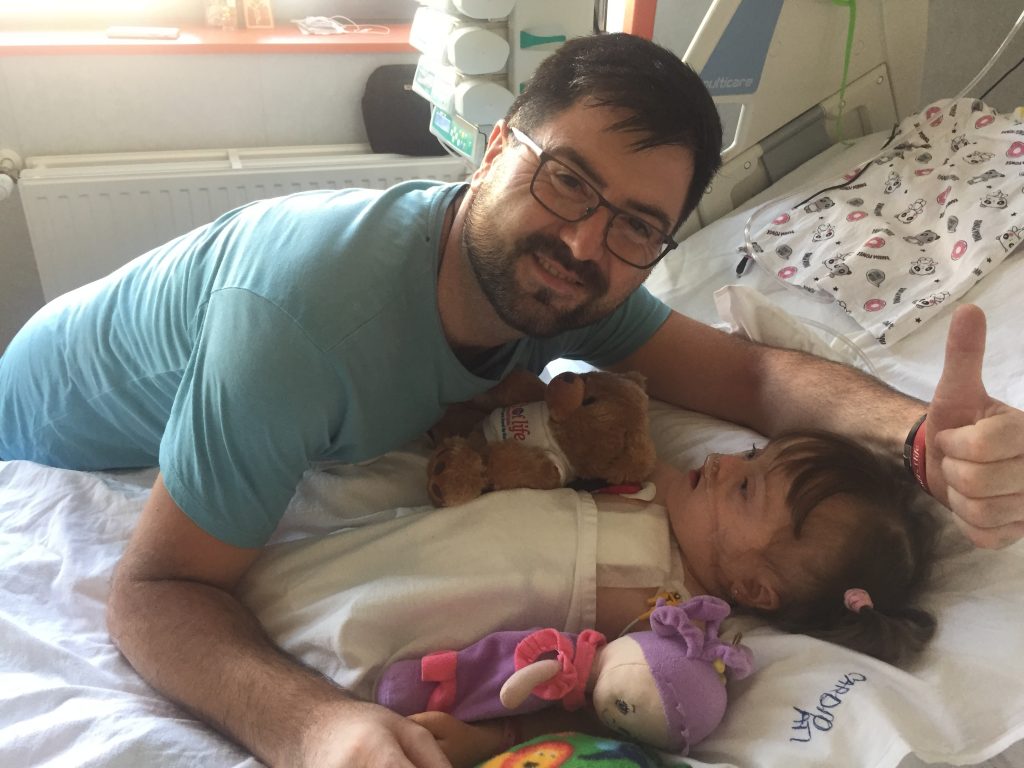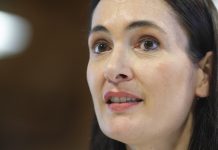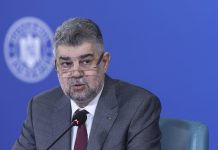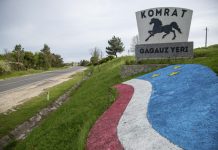
Daniela-Ioana Enache has tubes in her nose, soft toys on her bed and her loving father watches over her as she recovers from heart surgery.
The two-year-old girl who has Down’s Syndrome is one of the lucky ones.

The Grigore Alexandrescu children’s hospital in Bucharest where she had surgery on her right ventricle and pulmonary artery on Sept. 24 has state-of-the-art equipment for heart surgery, but there’s little activity in the sophisticated operating theatres during a visit one day this week.
Perhaps because the unit has just one heart surgeon. “That’s me,” said Andrei Barsan whose last operation was six days earlier. The unit’s anesthetist is on maternity leave and there is no Intensive Care Unit specialist.
“To function minimally, we need another surgeon and at least one anesthetist and there’s the ICU issue, too,” said Barsan, calling the situation “highly demanding.” It comes down to this:
“If you don’t have someone to put the patient to sleep, you can’t do your job.”
To carry out life-saving heart surgery, Grigore Alexandrescu relies on visiting doctors from Italy, the U.S. and other hospitals around Romania. “If we didn’t have (these medics) we couldn’t carry out operations,” he told universal.net.
About 1,000 children are born every year in Romania with heart malformations that require surgery ideally when they are six months old to allow them to lead a normal life. Many don’t get the procedures they need until much later.
“It’s high-risk surgery and a lot of morbidity and mortality. At the end of the day you can’t wait too much,” he said.
The hospital gets financial support from the Rotary Grant Support through its Gift of Life non-profit organization which has invested $865,000 and treated 156 children at the hospital in recent years. The money finances operations at the unit.
Grigore Alexandrescu first opened in 1864 and is the oldest pediatric hospital in southeast Europe. It has about 20,000 admissions per year from all over Romania and has units for burns, orthopedic surgery, neurological surgery, ear nose and throat, and heart surgery.
The hospital could potentially operate annually on 250 heart patients. Last year it carried out 79 operations with 10 other procedures. In comparison, Barsan says Britain’s Great Ormond Street does 500 operations a year, and the Royal Brompton Hospital carries out 400. Paris’ Necker-Enfants Malades performs 1,000 operations.
“We are half-closed, we have patients, but we can’t operate,” he said. The situation is similar in the Marie Curie pediatric hospital, the capital’s other major public pediatric hospital.

The new cardiological unit opened in 2016 and was refurbished with equipment worth about euros six million. The hospital is hoping that the government and the World Bank will approve financing of euros 20 million to pull down the old building and erect a new one.
Barsan believes Romania needs a national debate to reorganize the health system, including preparing for emergencies such as how to handle patients after the fire at the Colectiv nightclub in 2015 which killed 64 people.
He says the hospitals; main problem is personnel. “It’s not good enough to have good building and equipment; you need people to work with the equipment. Although the government substantially raised salaries in March 2017, he says the pay is low compared to other European countries. On top of that, the system needs to be reformed, there are growing numbers of lawsuits from patients and medics suffer from burnout, he says. “They say: ‘why should I kill myself?” There is also a lack of psychologists, physiotherapists and others who do jobs that support surgeons.
If there are less doctors than before, Romania also has a falling birthrate.
Last year, Romania had the lowest birthrate since 1966 when former Communist leader Nicolae Ceausescu introduced a near ban on abortion. There were just 180,500 births last year, about a third of what it was after communism collapsed in 1989.
Health Minister Sorina Pintea said 2,312 medics left Romania in 2018, more than six doctors a day, down from 2017 when about 2,800 left the country.
Barsan, a Romanian pediatric cardiovascular surgeon, worked in Britain, France and Italy and then came back to Romania and has been working at the hospital for about 18 months. “It is frustrating because there a lot of patients who need treatment and the system is slow.”
“We have to give these kids a destiny,” says Barsan. “It’s too complicated to send them to Marie Curie, Cluj and Targu Mures or abroad.”
Cristian Vasile Enache, a 41-year-old firefighter from Bacau, is staying at the hospital to look after his daughter. She was abandoned by her mother when she was three months old and Enache is currently caring for her on paternity leave.
“Words are not enough to express my gratitude,” he said. “When I see the doctor, I see God. The hospital greeted us with open doors and open arms; they helped us until the end.”
While Barsan is frustrated that the hospital isn’t operating on more of Romania’s sick children, parents feel an overwhelming sense of gratitude. Daniela “has been reborn so she can enjoy her childhood,” said Enache.
“The staff here are guardian angels.”
Alison Mutler is an experienced British journalist based in Bucharest and has covered Romania, Moldova and occasionally Bulgaria and Hungary for almost 30 years. She first reported from Romania, Bulgaria and Moldova before communism ended, and was In Romania, working for British television station ITV during the 1989 anti-communist revolt. She recently left the Associated Press after 25 years. Her Twitter handle is @AlisoNJMutler


















